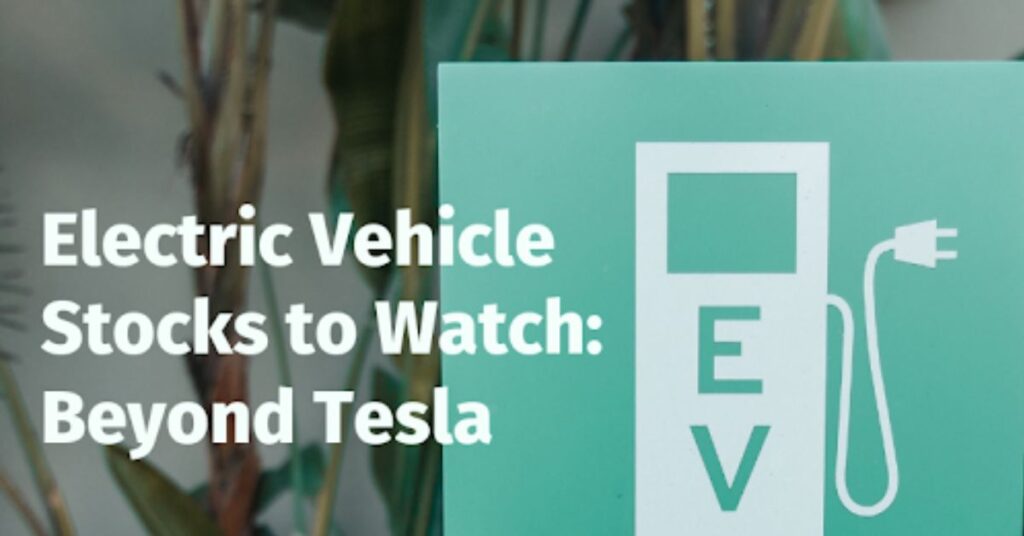Electric vehicles are actively conquering the global automobile market. In 2024, global sales of electric cars grew by about 25%, exceeding 17 million units – it is 18% of all new cars. In 2025, according to forecasts, EV sales will reach ~22 million, which will already make up a quarter of the market. Tesla remains the industry leader – in 2024, it delivered 1.79 million electric vehicles, maintaining first place (Chinese BYD came close to this level). Tesla shares have long served as a barometer of the EV sector, and activity in the Tesla stock trading area reflects overall investor interest in the electric vehicle market. However, investors are increasingly looking “beyond Tesla” – at other global companies in the electric vehicle sector that can take off in 2024-2025.
BYD: Chinese Giant Catches up with the Leader
The Chinese company BYD has become Tesla’s sizable competitor. In 2024, BYD almost caught up with Tesla in sales of purely electric cars: 1.76 million units versus 1.79 million for the American competitor. In light of plug-in hybrids, BYD’s total sales exceeded 4.25 million cars for the year (an increase of about 41% compared to the previous year). BYD’s financial indicators are also impressive: in 2024, the company received a record profit of ~$5.5 billion with revenue of almost $107 billion. In terms of revenue, the Chinese manufacturer has already overtaken Tesla, although in terms of profit, the American company is still ahead.
In the domestic market, BYD pursues an aggressive pricing policy, offering models in all segments – from budget to premium. At the same time, the company is actively increasing exports: in 2024, ~417 thousand of its electric cars were sold outside of China, and the goal for 2025 is to double this figure to ~800 thousand. To bypass prohibitive tariffs, BYD plans to open assembly sites in Europe and other regions. As a result, BYD has established itself as a global player, with its shares drawing attention alongside Tesla.
NIO: A Premium Startup with Plans to Double
Chinese brand NIO is a pioneer in the premium segment of electric vehicles. After the difficulties of the beginning of the decade, NIO is gaining momentum again: from ~160 thousand EVs sold in 2023 to over 220 thousand in 2024. The company’s management aims to double sales in 2025 compared to 2024. To expand its audience, NIO launched a more affordable line (the Onvo brand) in 2024: the first Onvo L60 crossover was released at a price of about $30 thousand – noticeably cheaper than the Tesla Model Y. At the same time, NIO is optimizing costs and increasing production efficiency, trying to multiply margins. The company already sells its cars outside of China (in Europe) and continues to expand. Although NIO is still unprofitable, its accelerating growth and investor support make it one of the most promising stocks in the EV sector.
Xpeng and Li Auto: Technology vs. Hybrid Niche
Among other Chinese players, Xpeng Motors and Li Auto stand out. Xpeng sold about 190,000 electric vehicles in 2024, focusing on advanced technologies (autopilot, software) and entering foreign markets. The company attracted a strategic partner, the Volkswagen Group (acquired ~5% of the shares) – and expects to reach breakeven as early as 2025. Li Auto, on the contrary, focused on large crossovers with an increased power reserve (electric vehicles with a gasoline generator) and achieved excellent results.
In 2024, Li Auto sold about 500,000 such vehicles – more than any other new EV brand in China. Thanks to this niche, the company has become profitable and aims to sell about 700 thousand cars in 2025 . Both manufacturers have firmly occupied their segments in the Chinese market and are attracting the attention of investors with global ambitions.
Rivian: Electric Pickups Backed by Amazon
The American manufacturer Rivian has placed its bets on electric pickups and SUVs. Its flagship models, R1T (pickup) and R1S (SUV) are aimed at the premium segment, and Amazon is the key investor. The online giant owns about 16% of Rivian shares and has ordered 100 thousand electric vans from it for its delivery fleet (delivery period – until 2030). In 2023, Rivian produced ~57 thousand vehicles, fulfilling its annual plan. However, in 2024, due to a shortage of components, the company cut its production forecast to 47-49 thousand units, which is less than the year before. Rivian is trying to cut losses: in early 2024, it optimized its staff by ~10% and reduced the cost of some trim levels of its models.
A positive signal for investors remains the company’s long-term strategy – the company is developing a second generation of more affordable R2 models (production is scheduled to start in 2026). With Amazon’s support and future model expansion, Rivian shares remain in focus as a potential beneficiary of the growing U.S. EV market.
Lucid Group: Luxury EV with Middle Eastern Roots
The American Lucid Group stands out in the luxury segment of electric vehicles. Its Lucid Air sedan competes with the Tesla Model S and Mercedes-Benz flagships, offering a record-breaking power reserve. However, production volumes are still modest: only 8,428 cars were produced in 2023, and the plan for 2024 is about 9,000. Lucid’s main trump card is the support of the Saudi state fund PIF, which owns ~60% of the company. In 2024, PIF agreed to invest another $1 billion in Lucid, ensuring the launch of the new Gravity SUV (production is expected to start at the end of 2024).
According to analysts, Lucid’s production may increase to 20 thousand cars in 2025 with the release of Gravity. The company also plans to introduce a more affordable model ($50,000) by 2026, which would significantly expand its potential market . Lucid shares remain a high-risk but intriguing bet on the success of a high-tech newcomer in the premium EV niche.
Conclusion. Trends and Prospects
The global EV market will continue to grow in the coming years, although competition is getting tougher. Tesla is still the leader, but its global share is declining amid the expansion of Chinese brands. Annual sales of electric vehicles are expected to increase by another 30% in 2025, reaching ~25% of the entire auto market. Therefore, investors are looking not only at Tesla but also at its competitors – such as BYD, NIO, Xpeng, Li Auto, Rivian, and Lucid. Each of these players has its own strengths and ambitious plans, and they will largely determine the development of the electric transport industry in 2024-2025.







